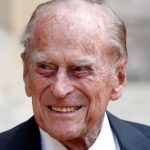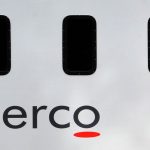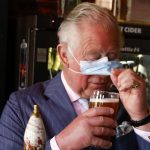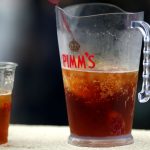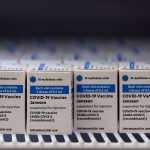Four protesters have been found not guilty of causing criminal damage after toppling of the statue of slave trader Edward Colston in Bristol during a Black Lives Matter protest.
A jury at Bristol Crown Court cleared Rhian Graham, 30, Jake Skuse, 33, Sage Willoughby, 22 and Milo Ponsford, 26, of charges, following a trial that lasted two weeks.
The statue of the 17th century slave merchant was pulled down on 7 June 2020 following a Black Lives Matter march, before being rolled into Bristol harbour.
In closing speeches, defence barristers had argued that the Colston statue – erected in 1895 – had become inappropriate and offensive and that over the years, thousands had signed petitions to have it removed.
Liam Walker QC, representing Sage Willoughby, had told the jury their decision would reverberate around the world:
“Make no mistake members of the jury, your decision is not just going to be felt in this courtroom or this city,” he said. “I urge you all to be on the right side of history.”
Tom Wainwright, representing Milo Ponsford, told the court: “If you have a cancer like Colston festering in your city, you cut it out. Only once it’s gone that the body can heal.”
Sasha Johnson: Four men deny conspiracy to murder over shooting of BLM activist and will face trial in March
Banksy: Thousands queue for T-shirt by street artist to raise cash for four accused of toppling slave trader statue
Are perceptions around race holding back mental health services?
During the trial, CCTV and mobile phone footage of the toppling of the statue was shown to the jury.
The statue was toppled less than two weeks after the murder of George Floyd by police officer Derek Chauvin in Minneapolis.
Please use Chrome browser for a more accessible video player
It was retrieved by Bristol City Council a few days later and put on display at a city centre museum in June last year.
Prior to the verdict, William Hughes QC, prosecuting, had told the jury the prosecution did not dispute Edward Colston’s history being “awash” with the slave trade – but that it was not him on trial, and that the evidence before the jury proved each defendant had acted in a criminal manner.
Shortly before the trial, anonymous street artist Banksy produced hundreds of T-shirts showing the empty Colston plinth in support of the four defendants, saying the money raised would allow them to “go for a pint”.
There were loud cheers from the packed public gallery after the not guilty verdicts were returned.
The four defendants had laughed with relief as the verdicts were returned and hugged the many supporters that were waiting outside of court when they were released from the dock.
Outside the court building, Rhian Graham said: “We are ecstatic and stunned. I’m just so overwhelmed because it never felt like we’d get here and now we’re here.
“We just want to say thank you to so many people because we have never been alone in this journey.
“We’ve been so supported and we are such a small part of this, really.”
In a statement, Raj Chada, who represented Jake Skuse, said: “The truth is that the defendants should never have been prosecuted.
“It is shameful that Bristol City Council did not take down the statue of slaver Edward Colston that had caused such offence to people in Bristol and equally shameful that they then supported the prosecution of these defendants.”
Blinne Ni Ghralaigh, for Rhian Graham, stated: “This case demonstrates the fundamental importance of trial by jury.
“That is because juries represent the collective sense of justice of the community.
“In this case, they determined that a conviction for the removal of this statue – that glorified a slave trader involved in the enslavement of over 84,000 black men, women and children as a ‘most virtuous and wise’ man – would not be proportionate.”


